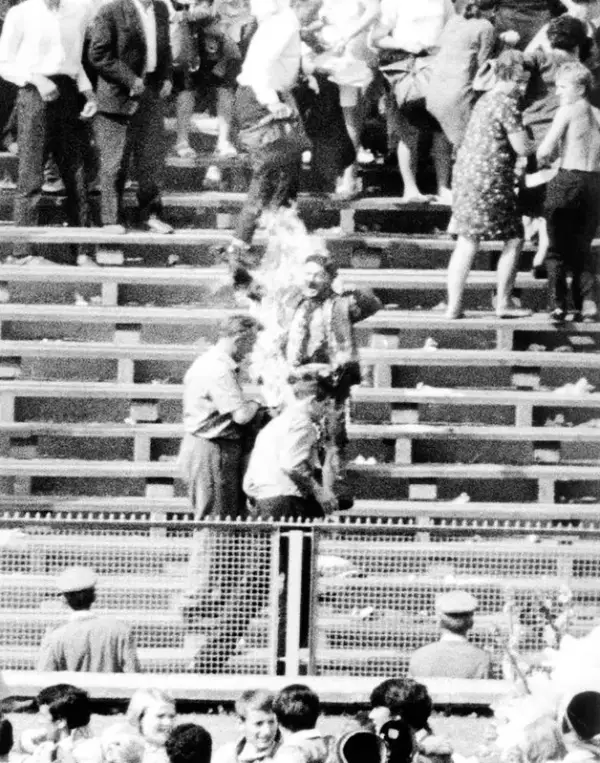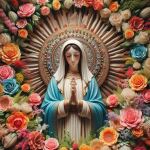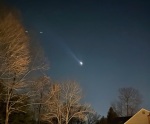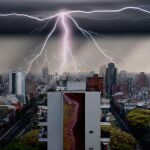The Shocking Story of the 'Bonzo' Suicide of a Polish Philosopher
Ryszard Siwiec, the first 'bonzo' of the West, self-immolated in protest against communism. His letter, received 22 years later, reveals his tragic story....
Table of Contents
- Ryszard Siwiec: The first 'bonzo' of the West
- A Disillusioned Intellectual
- An act of bravery and desperation
- The legacy of Ryszard Siwiec
Follow Patricia Alegsa on Pinterest!
Ryszard Siwiec: The first 'bonzo' of the West
Ryszard Siwiec became an emblematic figure of the resistance against communist oppression in Poland, being the first "bonzo" of the West.
His act of self-immolation, inspired by the Buddhist monks who protested against the Vietnam War, took place on September 8, 1968, amidst a crowd during the Annual Harvest Festival in Warsaw.
That day, Siwiec doused his body with a flammable liquid and set himself on fire, shouting: "I protest!" His sacrifice was a desperate cry against the Soviet invasion of Czechoslovakia and the communist regime that had betrayed the hopes of freedom of many Poles.
Born on March 7, 1909, in Debiça, Siwiec was an intellectual who dedicated his life to philosophy and resistance.
A Disillusioned Intellectual
Born on March 7, 1909, in Debiça, Siwiec was an intellectual who dedicated his life to philosophy and resistance.
With an education that led him to the University of Lwów, his career was interrupted by World War II, where he fought in the Polish resistance.
Despite his initial support for communism after the war, he quickly realized the atrocities and repression that this system brought with it.
The invasion of Czechoslovakia in 1968 was the last straw for Siwiec, who began to plan his act of protest as a way to draw global attention to the brutality of the regime.
The Harvest Festival, where his self-immolation took place, was intended to celebrate the regime's prosperity, but it became a stage for a powerful statement of protest.
An act of bravery and desperation
The Harvest Festival, where his self-immolation took place, was intended to celebrate the regime's prosperity, but it became a stage for a powerful statement of protest.
Despite the government's attempt to dismiss the act as an accident, the reality was that Siwiec had made his discontent clear not only with the invasion of Czechoslovakia but also with the lack of freedoms in his own country.
His testament, written before his death, was a call to humanity: "Recover your sanity! It's not too late!"
Siwiec was quickly forgotten by the regime, which tried to suppress the truth about his heroic act. However, his memory resurfaced over time. In 1981, a documentary was made in his honor, and in the following years, his bravery was officially recognized in Poland and Czechoslovakia.
The legacy of Ryszard Siwiec
Siwiec was quickly forgotten by the regime, which tried to suppress the truth about his heroic act. However, his memory resurfaced over time. In 1981, a documentary was made in his honor, and in the following years, his bravery was officially recognized in Poland and Czechoslovakia.
Today, several streets and monuments bear his name, including the former Dziesięciolecia stadium, which is now called Ryszard Siwiec.
His sacrifice has become a symbol of the struggle for freedom and human rights, reminding us that courage and resilience can emerge even in the darkest moments.
Subscribe to the free weekly horoscope
Aquarius Aries Cancer Capricorn Gemini Leo Libra Pisces Sagittarius Scorpio Taurus Virgo
-
 Why do we enjoy watching horror movies? Science explains it
Why do we enjoy watching horror movies? Science explains it
Discover why we love terror on Halloween: Science reveals how fear and stress hormones can be pleasurable for our brain. -
 Shocking details about the death of Matthew Perry
Shocking details about the death of Matthew Perry
Actor found dead in his jacuzzi: suffered cardiovascular overstimulation and respiratory depression due to ketamine and buprenorphine. Causes of his tragic death. -
 Discover the reason for the longevity of the shark that lives up to 500 years
Discover the reason for the longevity of the shark that lives up to 500 years
Discover the shark that lives up to 500 years. Scientists reveal its secret to resisting aging. A wonder of nature! -
 Incredible! Statue of the Virgin Mary wept blood, but DNA revealed to whom it belonged
Incredible! Statue of the Virgin Mary wept blood, but DNA revealed to whom it belonged
Gisella Cardia faces trial in Italy: a statue of the Virgin Mary 'wept' her blood, according to a DNA analysis that matches her genetic profile. -
 Resting with your dog: emotional benefits and hygiene challenges
Resting with your dog: emotional benefits and hygiene challenges
Resting with your pet in bed strengthens the emotional bond and provides security, despite some hygiene challenges. Discover its benefits!
I am Patricia Alegsa
I have been writing horoscope and self-help articles professionally for over 20 years.
Subscribe to the free weekly horoscope
Receive weekly in your email the horoscope and our new articles on love, family, work, dreams and more news. We do NOT send spam.
Astral and numerological analysis
-
 Discover your future, secret personality traits and how to improve in love, business and life in general
Discover your future, secret personality traits and how to improve in love, business and life in general
-
 Online Dream Interpreter: with artificial intelligence
Do you want to know what a dream you had means? Discover the power of understanding your dreams with our advanced online dream interpreter using artificial intelligence that responds to you in seconds.
Online Dream Interpreter: with artificial intelligence
Do you want to know what a dream you had means? Discover the power of understanding your dreams with our advanced online dream interpreter using artificial intelligence that responds to you in seconds.
-
 The Bloody Funeral of Genghis Khan: Unleashed Mystery and Violence
The Bloody Funeral of Genghis Khan: Unleashed Mystery and Violence
Discover the bloody funeral of Genghis Khan: a burial filled with eccentricities and hundreds of murders to keep its secret. A terrifying and mysterious event! -
 Revolutionary therapy for hormonal deficiency: the case of Messi
Revolutionary therapy for hormonal deficiency: the case of Messi
Discover the innovative diagnosis of Leo Messi at 19 years old and the new therapy that could revolutionize the treatment of somatropin deficiency. -
 Strange discovery on Mars, a rock that surprises NASA
Strange discovery on Mars, a rock that surprises NASA
A strange finding on Mars: Perseverance discovers a rock with zebra markings, sparking the interest of scientists and new theories in the Jezero crater. -
 Surprising health benefits of almonds
Surprising health benefits of almonds
Discover why almonds are a superfood: they improve cardiovascular health, aid digestion, and beautify the skin. Incorporate this nutritious nut! -
 Keanu Reeves: 60 years of life, love, the loss of his daughter, and his legacy
Keanu Reeves: 60 years of life, love, the loss of his daughter, and his legacy
Keanu Reeves turns 60: he overcame the loss of his daughter and his best friend, and found love with Alexandra Grant. A hero who prioritizes what he loves. -
 Appearance of UFOs in various places in the US worries authorities
Appearance of UFOs in various places in the US worries authorities
Mystery in New Jersey! Unsettling drones cause airport closures. The mayor and residents demand federal answers. What is happening? -
 Meet the ugliest fish in the world!
Meet the ugliest fish in the world!
The 'ugliest animal in the world' takes the crown! In New Zealand, this deep-sea fish won Fish of the Year with surprise popular support. -
 What does it mean to dream of a storm?
What does it mean to dream of a storm?
Discover the hidden meaning behind your dreams with storms. Do they represent a drastic change in your life or an intense emotional situation? Find answers in our article. -
 What does it mean to dream of razors?
What does it mean to dream of razors?
Discover the interpretation of dreams with knives in this article. Is it a harbinger of danger or a sign of courage? Find out now! -
 He is 58 years old, but looks 20, let me tell you his secrets
He is 58 years old, but looks 20, let me tell you his secrets
Discover the secrets of Chuando Tan, the 58-year-old influencer who looks 20. His lifestyle and diet are key to his incredible youth. -
 What does it mean to dream about shrimp?
What does it mean to dream about shrimp?
Discover the meaning behind your dreams with shrimp in this comprehensive article. Learn to interpret your dreams and uncover what the future holds for you! -
 Effective Strategies to Improve Depression
Effective Strategies to Improve Depression
Discover the exclusive strategies to understand and effectively support those living with this illness. Get informed now! -
 Can happiness be measured? What do the experts say?
Can happiness be measured? What do the experts say?
Can happiness be measured? Discover what experts say and how to boost it with habits, avoiding unrealistic expectations. Get informed here!